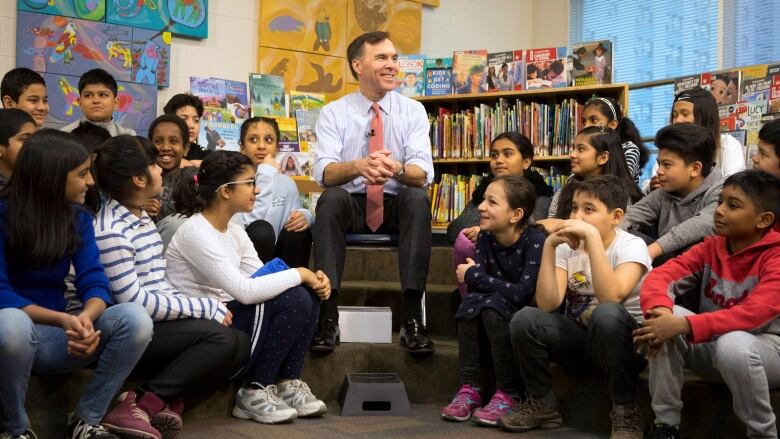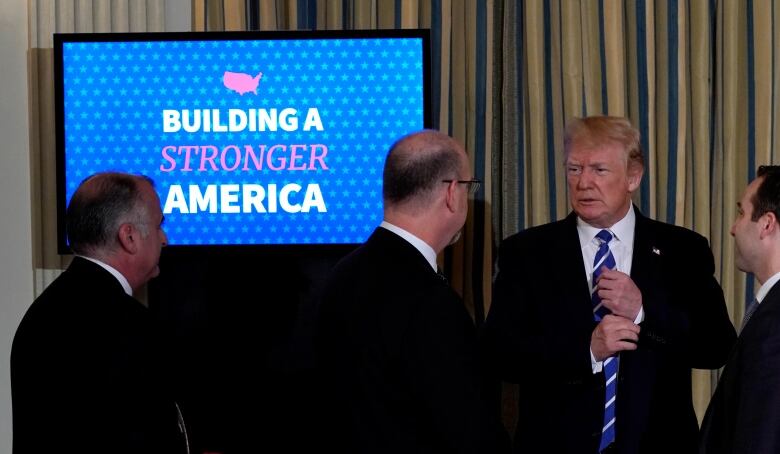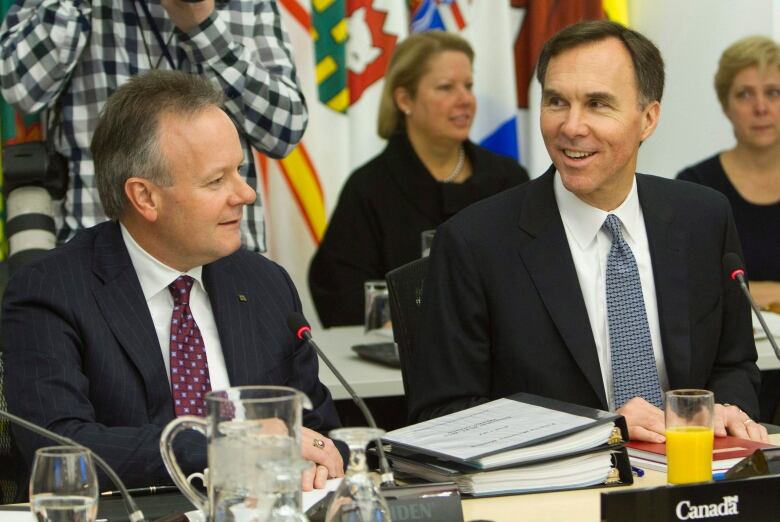Canada's finance minister unlikely to pile on government spending in next federal budget: Don Pittis
New fiscal spending just not needed to juice an economy charged up by U.S. spending and tax cuts

There is never any shortage of people asking for new money in a federal budget.
From Indigenoushousing to cyber-securityto conservation there are always worthy, and popular, ways to spend money. And if Ottawawere ever at a loss,provincial governments are full of helpfulsuggestions for new federal spending.
Despite the seemingly insatiable urge of governments to chalk up debt,there are some good reasons why finance minister Bill Morneaumay show somerestraint this time around.
A series of economic statistics, including last week's retail sales figures and January jobs,are furtherindicationsthatCanadian economicgrowth is declining from last year's highs.
Following Trump's lead
There is an argument that as central banks move to stopfanning the fire with rock bottominterest rates, the Feds should step in with higher fiscal spending.
That's the path the U.S. government has followed, cutting taxes while continuing to spend, effectively borrowing from the future to charge up the economy now.
Many Canadian voices have hinted that Canada should follow suit,at least in the area of tax cuts. They say Canadian businesses will be at adisadvantage compared to their U.S. competitors.
Others, including the University of Calgary's Jack Mintz,have warned that lower U.S. tax rateswill encourage Canadian businesses to relocate or expand in the United States.
But according to economists at the Bank of America, the stimulative effects of U.S. budget moves will not stop at the border.
In a report titled Sugar rush from U.S. fiscal candy,BofA Merrill Lynch Global Researchpredicts that U.S. cuts and spending will have a direct impact on the Canadian economy.
It says higher U.S. growth, a direct result of a "U.S. budget deficit of almost oneper cent of GDP in 2018," will push Canadian growth up to 2.5 per cent this year and unemployment down, forcing the Bank of Canada into more rate increases.
Monetary or fiscal
"We now expect the Bank of Canadato hike four times this year to bring the overnight rate target to two per centby year-end 2018," says the report.
The prediction is a bit of an outlier. But if the Bank of America analysts are right, following the January hike, over-borrowed Canadians could expect their mortgage rates to rise by another three quarters of a percentage point this year alone.

According to the Paris-based think-tank, "sovereign debt figures remain at historically high levels while elevated debt service ratios pose a significant challenge against a backdrop of continued fiscal expansion in most OECD countries."
That can cause a viciouscircle where more fiscal expansion leads to higher debt, contributing to even higher interest rates.
And there are signs inflation is creeping up. Friday's consumer price index demonstrated overall price increases slowed in January. But a glance at Statistics Canada's three measures of core inflation, indicators that removevolatile items,show a steadilyrising trend.
The Bank of Canada has said it may begin to work more closely with Finance to coordinatemonetary and fiscal policy. But according to the Conference Board of Canada'sCraig Alexander, who wrote in theReport on Business last week, any coordination must not conflict with the bank's independence in raising rates.
Oil on flames
So long as that independence is maintained, any fiscal spending that stimulates the economywill be at least partly counteracted by the Bank of Canada's higher interest rates.
As Bank of Canada Governor Stephen Poloz has repeatedly said, even at current levels, Canadian interest rates are low enough that theyare still stimulating the economy. And according to everyone's outlook, the Canadian economy continues to grow this year.

When markets plunged earlier this month, we saw how quickly the mood can change. As C.D.Howe policy analysts said in their Friday shadow budget, there are long-term challenges ahead for Canada, including an inevitable economic slowdown and an aging population.
But for now, while spending may make the Liberal government morepopular, the economy really doesn't need fiscal stimulus.
In a strategy we've seen before,Morneaumay announce spending plans for the coming years. He can certainly decide to change the government's spending priorities. Butpouring on newspending in this fiscal year may only serve to overheat an economy that really doesn't need to be any hotter.
Perhaps the finance ministerwill decide it's bestto wait a year and see how things look then. After all that will bethe budget just before the 2019 federal election.
Follow Don on Twitter @don_pittis
More analysis from Don Pittis













_(720p).jpg)


 OFFICIAL HD MUSIC VIDEO.jpg)
.jpg)



























































































